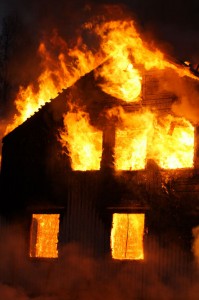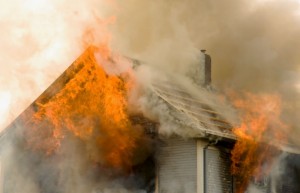Fire Safety: Important Tips Every Homeowner Should Know
You may or may not have a fireplace in your home, but even if you do not have a fireplace, there is always a possibility of a house fire. If a fire does break out in your home, you may only have as little as two minutes to be able to escape. The best way to protect yourself and your family is the identification and removal of all fire hazards from your home. Another excellent way to protect yourself, your family, and your home is to know and follow important home fire safety tips. At Hudson Chimney, we like to educate our customers on fire safety, and we would like to share with you some fire safety tips we feel are essential.
Install Multiple Smoke Alarms Throughout Your Home.
The Red Cross states that 60% of house fire deaths occur in homes with no smoke alarms installed. Smoke alarms should be installed on every level of your home, inside bedrooms, and outside sleeping areas. Make it a monthly routine to check your smoke alarms to be sure they are still working properly. Smoke alarms will usually last for at least 10 years; however, you will have to change the batteries to keep them working properly.
Create an Escape Plan to Have in Place for Your Entire Family.
Everyone in your home should know two ways to escape from every room in your home. Designate a meeting place outside the house to be sure everyone has gotten out safely. Use a two-minute time frame when you are planning your escape routes. Practice your escape plan with your family on a regular basis to be sure everyone knows how to proceed if an emergency should occur. Include waking up to smoke alarms, low crawling, and meeting outside during your escape plan practices. Be sure everyone in the house knows how to dial 911. Teach family members how to stop, drop, and roll if their clothes happen to catch on fire.
Be Safe in the Kitchen.
Never leave the kitchen unattended when cooking, frying, or broiling food, and do not leave your home when roasting, boiling, baking or simmering food. Set a timer to alert you when your food should be done cooking, baking, boiling, or roasting. Keep all flammable items like pot holders, towels, clothing, and plastic away from the stove. Keep all pets off cooking surfaces and countertops to prevent them knocking things onto the burners and to protect them from possibly burning themselves.
Use Common Sense.
Keep flammable items at least three feet away from space heaters, fireplaces, and other heating appliances. Turn off portable heaters when you leave the room and when you go to sleep. Never smoke in bed. Talk to your children on a regular basis about the dangers of fire. Always keep matches and lighters out of reach from children.
Know the Dangers of Carbon Monoxide.
Just as you do with smoke alarms, install carbon monoxide detector alarms on every level of your home, inside bedrooms, and outside sleeping areas. If one of these alarms goes off to alert you of the presence of carbon monoxide in your home, move quickly to the fresh air outdoors or stand by an open window or door. Never use generators, grills, camp stoves, or any other gasoline, propane, natural gas, or charcoal burning devices inside a home, a garage, basement, crawlspace, or other partially enclosed space.
Want to know more home fire safety tips? Contact our staff at Hudson Chimney. Fire safety education is part of our duties as CSIA-certified chimney sweeps, and we take pride in teaching our customers about fire safety procedures and precautions.


